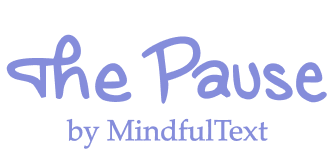At every moment, our brain is a hub of activity. Far from being chaotic, this activity follows a rhythm and order, manifesting as brainwaves that ripple across the cortex. These waves, as discovered by Hans Berger in 1924, originate from different brain regions and oscillate at various frequencies, each serving a unique purpose. This guide delves into these brainwaves and how they can be utilized for personal growth and success.
Beta: The Active Mind (12 - 30 Hz)
Beta waves dominate our normal waking state of consciousness when attention is directed towards cognitive tasks and the outside world. They are associated with active, busy, or anxious thinking and active concentration. Beta waves are crucial for effective functioning throughout the day, enabling us to make decisions, solve problems, and engage in focused mental activity. However, prolonged time in the Beta state can lead to stress and anxiety.
- Function: Active thought, concentration, decision-making.
- Role in Movement: Crucial for planning and executing movements; linked to disorders like Parkinson's disease.
Alpha: The Relaxed Awareness (8 - 12 Hz)
Alpha waves are present during quietly flowing thoughts and in some meditative states. They are typically associated with a state of relaxation, calmness, and alertness. Alpha waves can serve as a bridge between our conscious thinking and subconscious mind. They are beneficial for creativity, learning, and mental coordination. In an Alpha state, you can experience a reduction in stress and an increase in overall mental coordination and calmness.
- Discovery: First identified by Hans Berger.
- Function: Calm alertness, increased creativity.
- Health Benefits: Alleviates symptoms of depression and anxiety.
Theta: The Deep Connector (4 - 8 Hz)
Theta waves occur most often in sleep but are also dominant in deep meditation. They act as the gateway to learning and memory. In Theta, our senses are withdrawn from the external world and focused within. It's a realm of your subconsciousness, characterized by vivid imagery, creativity, deep relaxation, and enhanced intuition. Theta waves are instrumental in emotional processing and are often associated with creativity and the achievement of a deeply relaxed, yet aware, state of mind.
- Characteristics: Common during light sleep phases and internal focus.
- Function: Facilitates implicit learning and positive emotional experiences.
Delta: The Restorative Slumber (0.5 - 4 Hz)
Delta waves are the slowest and are present in deep, dreamless sleep and in very deep, transcendental meditation. They are the source of empathy and the basis of our unconscious mind, governing much of our autonomic bodily processes, such as heart rate and digestion. Delta waves are crucial for healing and regeneration, which is why deep restorative sleep is so essential to the healing process.
- Occurrence: Predominant in deep, non-REM sleep.
- Importance: Essential for deep sleep and body rejuvenation.
Gamma: Peak Performance (30 - 100 Hz)
Gamma waves are the fastest of brain waves and relate to simultaneous processing of information from different brain areas. They are associated with high-level information processing, insight, and the highest states of focus, problem-solving, and cognitive functioning. Gamma waves can underpin consciousness, attention, learning, and memory. Being in a Gamma state is often associated with a heightened sense of perception, increased mental clarity, and peak concentration.
- Characteristics: High frequency but low amplitude.
- Function: Enhances cognition, memory, and concentration.
Harnessing Brainwave States: Practical Techniques
- Meditation and Mindfulness: Different styles of meditation can significantly alter brainwave activity, promoting relaxation and focus.
- Neurofeedback: EEG and wearable devices like the Muse S can provide real-time feedback on brain activity, aiding in recognizing and regulating brainwave states.
- Brainwave Entrainment: Techniques like binaural beats synchronize brain frequencies to desired states, aiding in relaxation and focus.
- Quality Sleep: Prioritizing sleep ensures ample time in the Delta state for physical and mental rejuvenation.
- Creative Pursuits: Engaging in creative activities can naturally induce beneficial brainwave states like Alpha and Theta.
Conclusion: Mastering Your Mental States
Understanding and influencing our brainwave states is not just scientific exploration; it's a powerful tool for mastering our mental and emotional landscapes. By consciously navigating these states, we can enhance our productivity, creativity, and overall well-being, leading to a more fulfilled and successful life.


